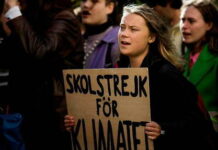Formerly, but it is not such an ancient time, there were two chapels, each with its devotees. Gasoline or diesel, the choice was relatively simple and each was determined according to its use, in particular the annual mileage. This criterion has drawn a Paris-province divide with more petrol vehicles in the capital and the big cities while rural areas favored diesel. There was a time when tax-free fuel from tractors ended up in car tanks, but the state has put a stop to that.
Today, it is another matter, much more complex since the two protagonists already mentioned are added the hybrid, the all-electric and finally the E85, which is a French specificity in Europe. This fuel of agricultural origin and more virtuous from the plant to the wheel – it lowers greenhouse gases equal to car by 72% and particulate emissions by 90% – is starting to really interest some local communities.
Greater Paris grants a reprieve to polluting cars
Faced with the problem that is tied around diesel cars before 2011 and petrol cars before 2006 which will no longer have access to Greater Paris, the search for alternative solutions quickly hit a wall. While the legislator thought to promote the electric car, the low resources of households threatened with a ban on driving in ZFEs (low emission zones) quickly demonstrated that it was mathematically impossible. And this all the more so since the owners of these polluting cars believe that they can still be driven for several years.
It seems that the Île-de-France region has appreciated the situation in all its reality and has found, within the framework of the social shield currently in place, the solution. It could ensure a smooth transition between old and new cars without upsetting household finances. With great relevance, Île-de-France has just allocated aid of 500 euros for the purchase and installation of an E85 bioethanol conversion kit, adaptable to any gasoline engine from 2001.
This kit is expensive, around 1,000 euros, a little less (850 euros) for these old cars, but the rest to be paid, aid deducted from the region, can be amortized in a dozen full tanks, or a few months. Indeed, superethanol-E85, currently at 0.8339 euros/l, is 60% cheaper than SP95-E10 at 2.0365 euros/l. It saves 900 euros in fuel per year for a motorist who uses his car every day on the basis of 12,500 km/year and 7 l/100 km (price on 24/06/22 – www.prix-carburants .gouv.fr/actualites/). That is to say a depreciation in six months in the current state of taxation, of course, which instruments this price differential at the pump.
With nearly 3,000 service stations in France delivering E85, there will hardly be any refueling problems, especially since the conversion unit is able to adapt indifferently to E10, SP95 or SP98 and even to the mixture of these fuels, whatever the proportions. This aid from the Île-de-France region will only be activated administratively from October 1 and until December 31, but, while waiting to submit the file (https://mesdemarches.iledefrance.fr), we can anticipate this assembly now.
Indeed, the 15 million euros allocated to this operation will make it possible to achieve 35,000 conversions. Provided that they are carried out in an approved workshop, with approved equipment, on a single vehicle (maximum 10 hp) from the household to their main residence in Île-de-France, converts will be able to go on vacation with an immediate reduction of 40% their fuel budget. Because we must take into account a downside, the provincial regions which had already set up this kind of aid (Grand Est, Hauts-de-France and Sud) are more timorous with conditions of resources or a reduction of 500 to 250 euros since July 1 in the South region.
A paradox, because it is in rural areas that we drive the most. Last point subject to debate, while a new gray card, quite often free, is issued to devote this virtuous technical modification, the Crit’Air sticker does not change on the pretext that the transformed vehicle could again run on gasoline. At more than two euros per liter, it is undoubtedly a masochist that we are talking about.


















